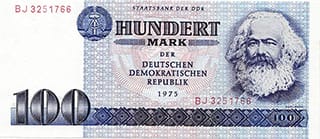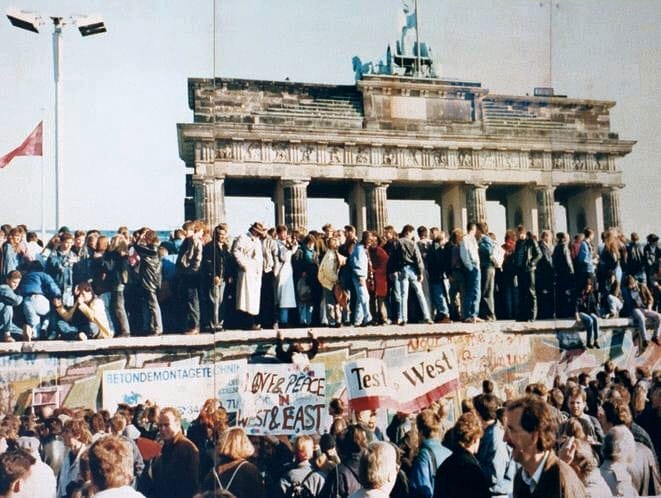The demise of the Berlin Wall, heralded 25 years ago this month, became the principal catalyst for rapid regime change across Eastern Europe and elsewhere. The wall was also the ultimate in a series of failed attempts to stave off far-reaching change through a limited liberalization of economic and business policies.
Forces outside of East Germany enabled the wall’s fall, but it toppled inward. It was Ronald Reagan who in 1987 called on Mikhail Gorbachev to “tear down this wall.” When demonstrators unexpectedly breached the barricade in late 1989, it was Gorbachev who signaled acquiescence rather than suppression (as China had decided on at Tiananmen Square half a year earlier). But the East German government itself encouraged the breaching … and did so by mistake.
In 1961, the wall was erected to keep East German citizens from “voting with their feet” for western capitalism. In 1989, a planned breath of consumer freedom became instead a wind that blew away the East German state.
When I first visited East Germany in 1984, people I met tolerated trading political freedom for economic security. They were more disappointed that they were only allowed to vacation within a handful of Soviet bloc countries. With rare exceptions, they could not visit their relatives in West Germany, who, however, could and often did travel almost anywhere including—by then—to East Germany. Views on the East German regime varied, but I heard no support or even excuses for the wall.
By the autumn of 1989, the inefficient economy of East Germany was in decline. Anti-government demonstrations were growing. Escape routes to the West had opened through Hungary. New and relatively inexperienced rulers, wanting to accede to reforms while keeping things under control, decided that allowing more tourist travel to the West might slow the stream of westward departees.
The government hoped to extend a hand toward unmet consumer desires but instead put its own Achilles heel foremost. The plan to ease travel restrictions was prematurely announced at a TV press conference on Nov. 9, 1989, before procedures were in place or border guards notified. Further compounding the error, the plan was mistakenly declared to be in effect immediately. Evening mass gatherings near the wall were by then an almost daily occurrence. This accidental green light sufficed to send more demonstrators not just to the wall but over it as well.
When I visited Berlin on business later that month, no one realized that East Germany would soon be holding its first and last ever fully free election to install another new government whose lasting achievement would be to promptly engineer the swift end of the East German state itself. A torrent of pent-up interest in consumer choice and free enterprise was already flowing however.
Along the wall’s west side, the sounds of hundreds of hammers and chisels was unforgettable.

The East German 100 mark bill. Photo credit: Wikimedia Commons.
At a nearby train station, street peddlers were doing a brisker business offering East German currency at a deep discount below the prevailing “gray” market rate available at Western banks. (Inside East Germany, exchange at the much more expensive official rate was required). Recalling the teachings of Wharton international finance courses about currency exchange rates and purchasing power parity, I experimented with a modest investment in bills bearing the image of Karl Marx. Several months later, the rate had moved up much closer to purchasing power parity. Before the trade and the currency itself disappeared, I sold off my supply of what was soon destined to become Karl Marx wallpaper, netting a gain which about covered my roundtrip airfare to and from Berlin.
Stopping later at a West Berlin McDonald’s restaurant, I chatted with an Eastern German on his first visit west, sampling his first Big Mac. A one-time gift of 100 West German marks to each East German visitor was a small example of how eastern liberalization was encouraged by Western financial support. A lead instigator of this sort of détente “carrot” counterpart to the Cold War “stick” was 1970s West German Chancellor and Nobel Peace laureate Willy Brandt. He had been mayor of West Berlin when the wall went up in 1961. In 1989, he was happy to see it destroyed, except for a small stretch (since turned into a tourist attraction and protected by protesters demanding that it remain intact).
The economic reunification of Germany over the past two and a half decades has been slow and costly but mostly successful and has produced major new opportunities for business. A big anniversary celebration is planned in Berlin this month, and travel agents have been busy advertising and booking trips. The unanticipated boost to globalization a quarter-century ago, triggered by unexpected consequences of business-related policies, has had long-term effects on business the world over.

























